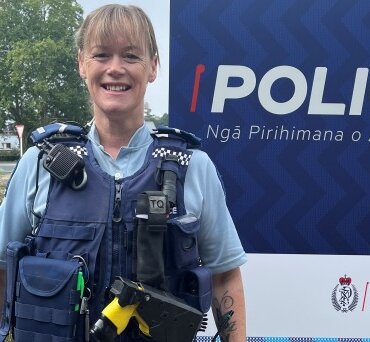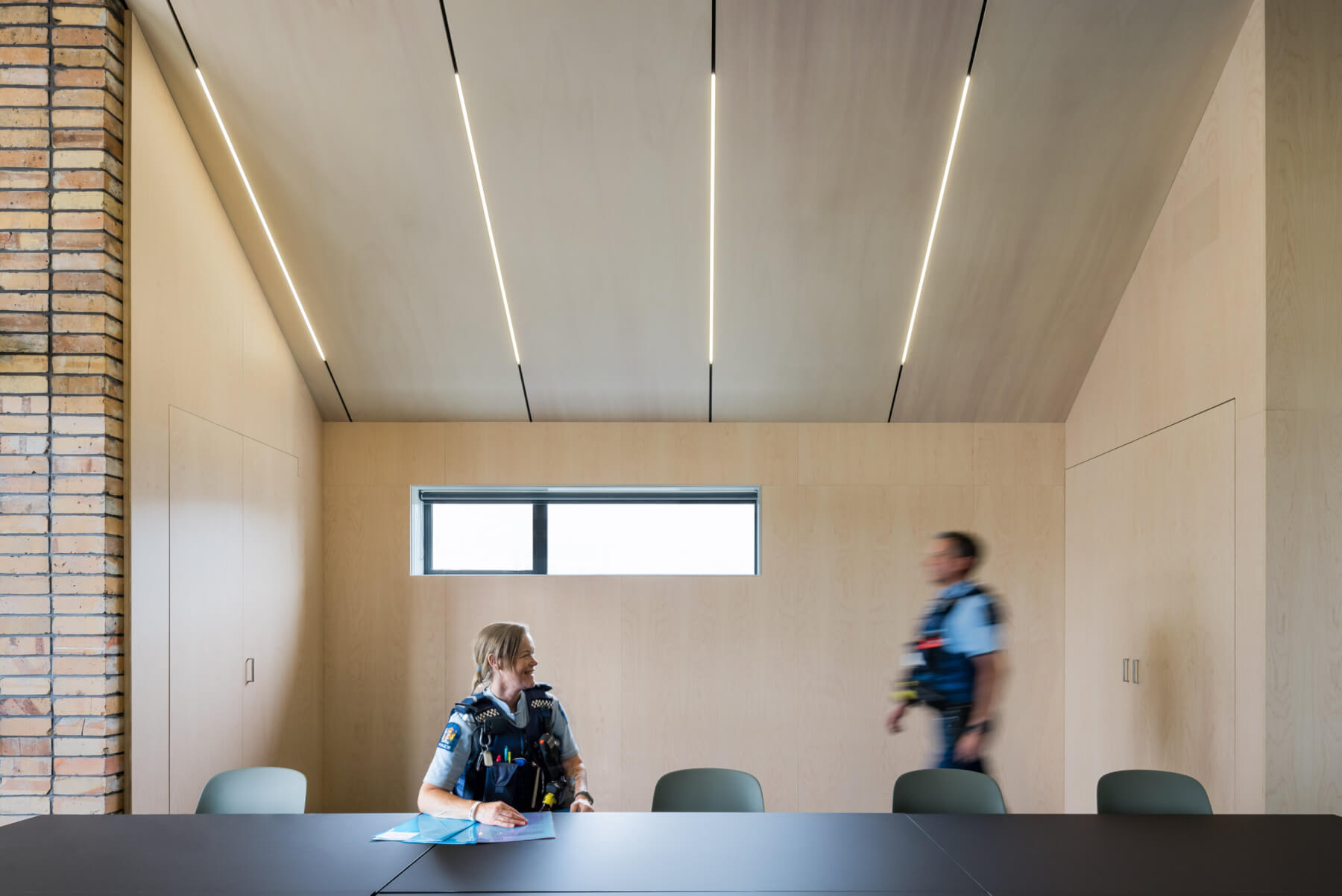
Deb Hann
People often assume family harm is physical abuse. It encompasses emotional, psychological, financial, and sexual abuse, however, normalisation of behaviour is where a person is in an abusive situation for so long or so intensively, that what they are experiencing feels normal, and their level of acceptance or threshold for tolerating it becomes unhealthily high.

Senior constable Deb Hann inside the police station. Photo: Aaron Radford.
We notice this in children exposed to family harm, where adults in the house yelling, screaming, or hurting each other no longer phases the child, who is reported as ‘calm and happy’ when Police arrive. That is more a sign that the frequency of incidents is such that it has become their base line normal home life.
In the past few weeks, I have supported victims of family harm who have endured psychological abuse for years, before fully realising the situation and reaching out for help. Sometimes, without a hand being laid on a victim, power and control is maintained.
Examples of such behaviour include isolating the victim from family and friends (an insidious process that occurs over a period of time). Thereafter, tracking their every movement, often via phone applications or even an air tag on their vehicle, phoning them when they go somewhere unplanned or take longer that the perpetrator thinks it should to travel somewhere or complete a task, accompanying them everywhere possible, removing privacy through demanding access to email and messaging accounts and questioning their interactions with friends.
It can include the installation of cameras to remotely monitor a victim’s behaviour in their own home, having sole financial control and access to banking accounts and always blaming the victim for causing arguments or abuse from the perpetrator. As an outsider, such things are clearly unacceptable and unhealthy.
As the target of the behaviour, often steadily escalated over a period of time, it is often not so visible, but even where it is, the fear of upsetting the perpetrator can be paralysing. It is important to be able to recognise these patterns in our own relationships and those around us and to know that support is available.
NZ Police and agencies such as Waitomo Waipa Women’s Refuge and Cambridge Community House will support victims through the process of making a safety plan at home and when ready to leave the relationship, obtaining legal advice, protection orders (along with parenting, occupation and furniture orders where appropriate), counselling and ultimately moving forward on a healthier path.
If you or someone you know is in this situation, please reach out.








